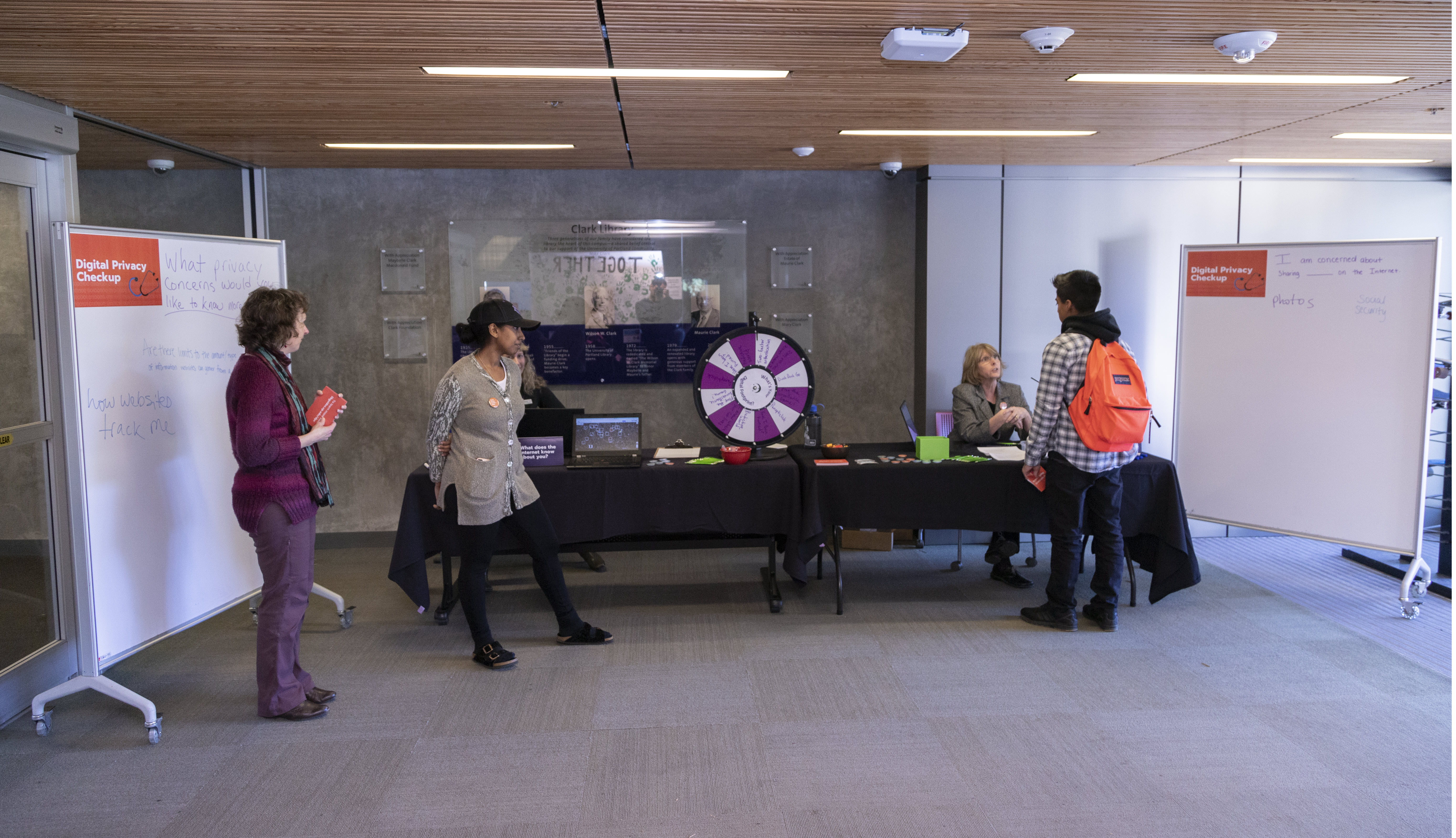Re-cap: University of Portland Library’s Digital Privacy Checkup
University of Portland (UP) librarians Jane Scott, Heidi Senior, and Diane Sotak, along with two library student workers, offered a Digital Privacy Checkup pop-up event on Tuesday, October 29, 2019, that we thought other ACRL-OR members would like to know about. We were inspired by similar events (Sullivan et al., 2018) elsewhere that have been successful.

Heeding research related to attendance at traditional library workshops (Witherspoon & Taber, 2018) recommending that librarians “be there,” (i.e., be where the students are) we set up in the library’s lobby rather than holding a drop-in workshop, and we were “pushy” (Witherspoon & Taber, p. 12), approaching students as they entered the building to ask if they “wanted to learn a little bit about digital privacy.”
The event had two main themes “Creating Strong Passwords” and “Your Digital Footprint (Understanding What the Internet Knows About You).” These themes correspond to pages of resources on a Digital Privacy Checkup LibGuide we created for the event. We set up four laptops on tables in the lobby so that students could explore the LibGuide’s sites, with a spinner provided by the UP Student Activities office as a fun way to select a site at random. We offered a diceware game (Reinhold, 2019) to illustrate the passphrase approach to creating strong passwords. We also set up two whiteboards asking students to share their concerns about digital privacy, and to fill in the blank: “I am concerned about sharing ____ on the Internet.”
In addition to these activities, we gave out freebies: zine-style instruction booklets about creating a strong password (McElroy, 2018); “#cyberaware” pens and magnets provided by UP’s Information Services unit; and buttons designed by our Digital Lab Coordinator José Velazco with three sayings: “I’m a Privacy Superhero,” “Bet You Can’t Guess My Password,” and “I Had a Digital Privacy Checkup Today.”
Compared with traditional drop-in workshops at which we’d feel lucky to have five attendees, this event reached many more people; for example, we gave out 50 zine-style instruction booklets about creating a strong password, and nearly 100 cards with the LibGuide address. We enjoyed the discussion with students about their privacy online, and their concerns or lack of concerns, as another benefit of this type of workshop. We are planning another event to observe International Data Privacy Day on January 28, 2020.
References
McElroy, K. (2018). Password 1234: How to use diceware to build a strong passphrase. Library Freedom Institute. Retrieved from https://github.com/alisonLFP/libraryfreedominstitute/blob/master/assignments/week3/McElroy%20Week%203.pdf
Reinhold, A. (n.d.). The Diceware passphrase home page. Retrieved from http://world.std.com/~reinhold/diceware.html
Sullivan, M., Rainey, H., Cross, W., & Nakasone, S. (2018). Digital safety and privacy: Raising awareness through library outreach. Presentation at the Online Northwest conference, Portland, Oregon. Retrieved from https://pdxscholar.library.pdx.edu/onlinenorthwest/2018/presentations/11/
Witherspoon, R., & Taber, P. (2018). Student attendance at library workshops: What the data tells us. Presentation at the Workshop on Instruction in Library Use (WILU) conference, Ottawa, Ontario. Retrieved from http://ruor.uottawa.ca/handle/10393/37937